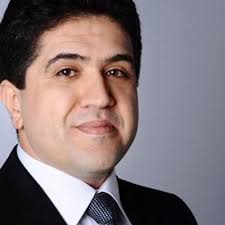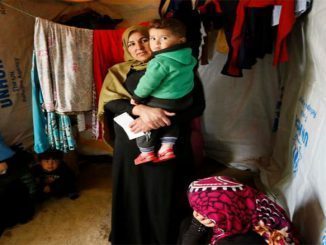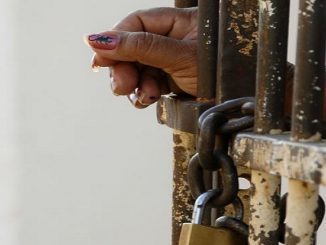
BY: DR. SADIK ÜNAY*
Since the so-called Arab Spring turned into a nightmare, the main parameters of the new era or the foundations of the new regional order are still to be determined. As such, construction of some form of order in the Middle East and North Africa following wars, tribulations, civil strife and tragedies of the last five years began to constitute the locus of an unconventional global conflict among major powers. As Iraq, Syria, Libya and Yemen rushed into chaos and potential disintegration as “failed states” along with numerous countries destabilized by the regional mayhem, the seeds of a global war were swiftly thrown into the shifting sands of the Middle East.
Unlike the first and second world wars, the current war seems to be fought by multiple actors via unconventional means, including proxy conflicts, use and abuse of local paramilitary groups, occasional support to international terrorism and secessionist movements, to gain advantage in critical geopolitical hotspots and energy crossroads. New alliance networks in the region that determine the sides of this fragmented warfare are dynamic, or capricious if you like, and display constant shifts in line with conjunctural developments. There are no long-term commitments, loyalty to institutionalized alliances, humanitarian concerns or regard for international law. The volatile nature of alliance formation in this neo-medieval setting is perfectly exemplified by the strategic preferences of the U.S. in Syria, which started from collaboration with Turkey and the moderate opposition against Daesh and the Assad regime, and shifted towards an alliance with the People’s Protection Units (YPG) and Iran-backed paramilitary groups against Turkey with tacit non-interference in the Assad regime.
The unexpected speed of the geostrategic rapprochement between Tehran and Washington following the nuclear deal, which was, by the way, largely facilitated by Turkey, at the expense of Ankara and Riyadh is also indicative of the new regional pseudo-order. The idea that the grandiose operation “to save Mosul from Daesh” is conducted by the Tehran-backed al-Abadi government, Shiite Hashd al-Shaabi militia and Kurdish elements affiliated with the YPG under the veiled coordination of the U.S. and Iran could have been unthinkable just a year or two ago. Tehran’s sectarian rhetoric and proxy war capabilities seem to bode well with American pragmatism focusing on the capture of critical geopolitical junctions and energy depots, such as Mosul. While collaborating with Russia, the Assad regime and Hezbollah-linked militia in Syria so far, Iran showed its strategic flexibility by conjuring up a move in Mosul against Turkey via the ailing al-Abadi government and active support of the so-called “Great Satan,” the U.S.
This bleak milieu pretty much constitutes the murky regional groundwork for Turkey’s new found pro-activism, or the Erdoğan Doctrine, which became inevitable in a region of murky alliances, fait accompli, power politics and veiled collaboration. What this new approach implies is careful monitoring of “shifting sands” in the region and interfering developments on the ground via diplomatic and if necessary military means when vital national interests are at stake. Operation Euphrates Shield was the first indication of this proactive stance, which clearly represented Turkey’s smart response to a de facto YPG corridor that was in the process of being constructed in northern Syria with active U.S. support. Ankara utilized all possible diplomatic channels to warn Washington that this corridor along with its southern borders will be totally unacceptable, as it will foster PKK terrorism in Turkey and accelerate disintegration dynamics in Syria. Yet as Daesh and PKK terror attacks on Turkish soil stemming from Syria reached unbearable levels, Ankara did not hesitate to interfere on the ground with a military operation coordinated with Free Syrian Army forces and proceeded to form a de facto safe zone for refugees. This move was obviously made possible with the recent normalization of relations with Russia as Moscow cleared the air space in the area designated by the Turkish army.
Mosul might provide the setting for the second manifestation of Turkey’s new pro-activism and employment of smart power, as the U.S. and Iran collaborate to push for a de facto sectarian project based on Shiite expansionism in Mosul and surrounding areas. Ankara has a historical mission and moral obligation to protect residents in Mosul and Turcoman population in towns such as Tal’Afar from both Daesh and Hash al-Shaabi aggression. If things get out of control, we might brace ourselves for a humanitarian intervention; and it will be in total conformity with the new power politics in the Middle East.
* Dr. SADIK ÜNAY has been a lecturer at Manchester, Birmingham and Huddersfield Universities in the United Kingdom and Balıkesir, Maltepe, Fatih, Yıldız Technical and İstanbul Şehir Universities in Turkey. His articles have been published in journals such as Emerging Markets Finance and Trade, Estudios Politicos, Insight Turkey, Perceptions and Review of International Law and Politics. He co-edited the Special Issue of Insight Turkey on the Political Economy of Turkish Foreign Policy. He also writes for Daily Sabah Turkish newspaper.
(Published in Daily Sabah on Sunday, Oct. 23, 2016)



